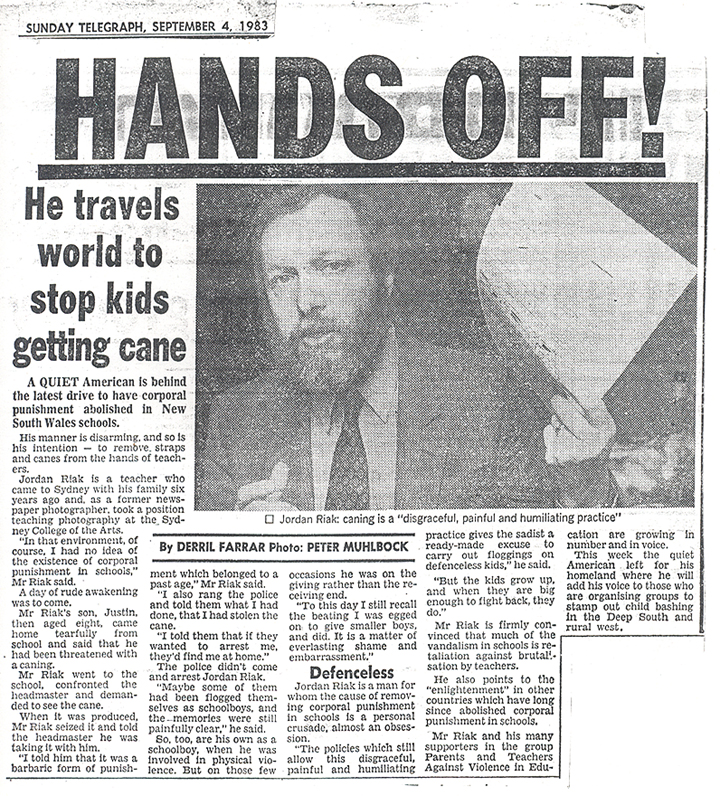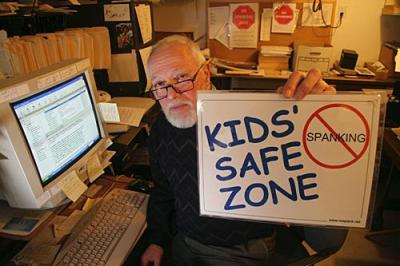 Jordan Riak, Jan. 7, 2008 Photo: Jay Solmonson/Staff San Ramon Daily Times 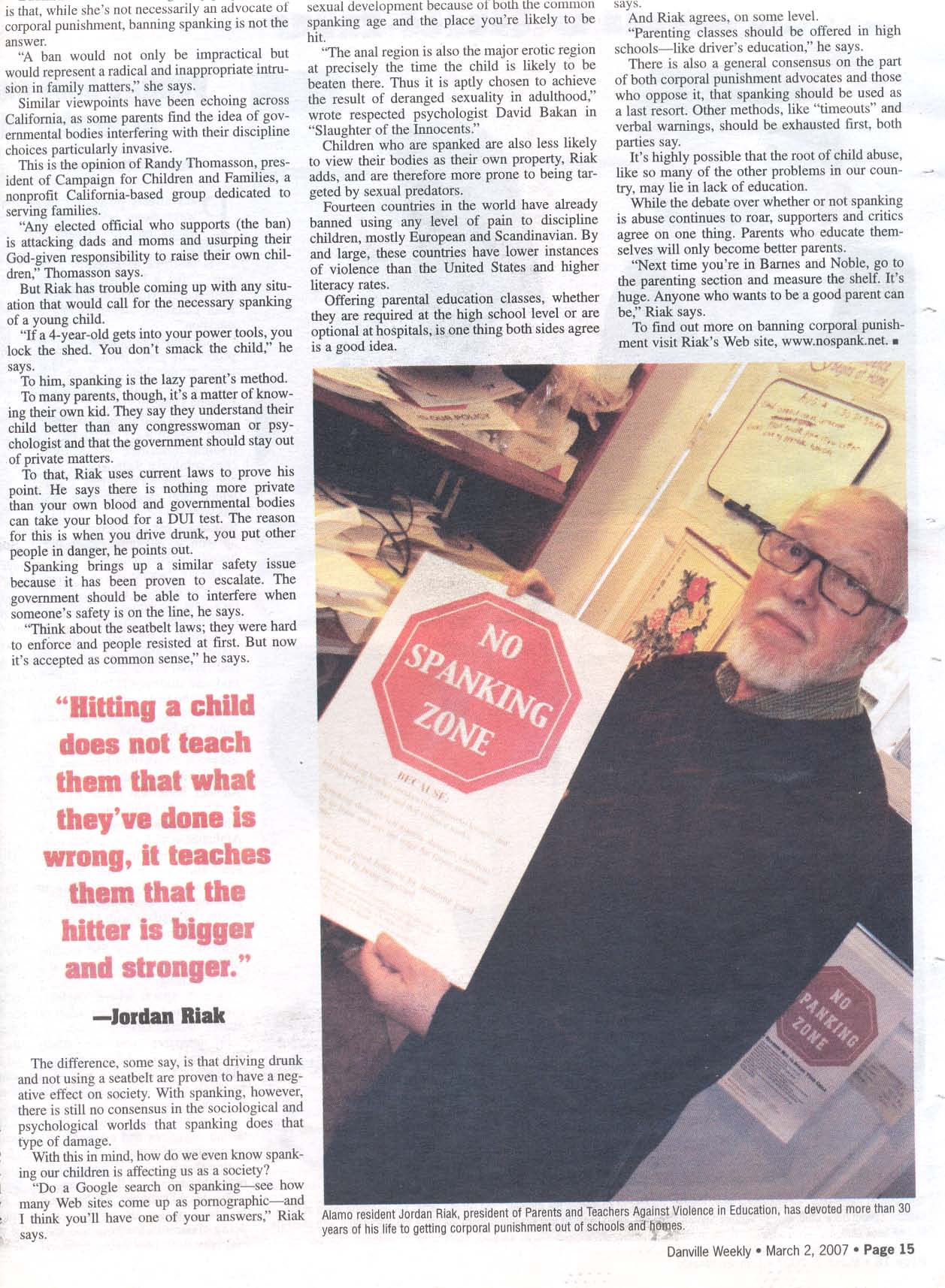 The Danville Weekly, March 2, 2007 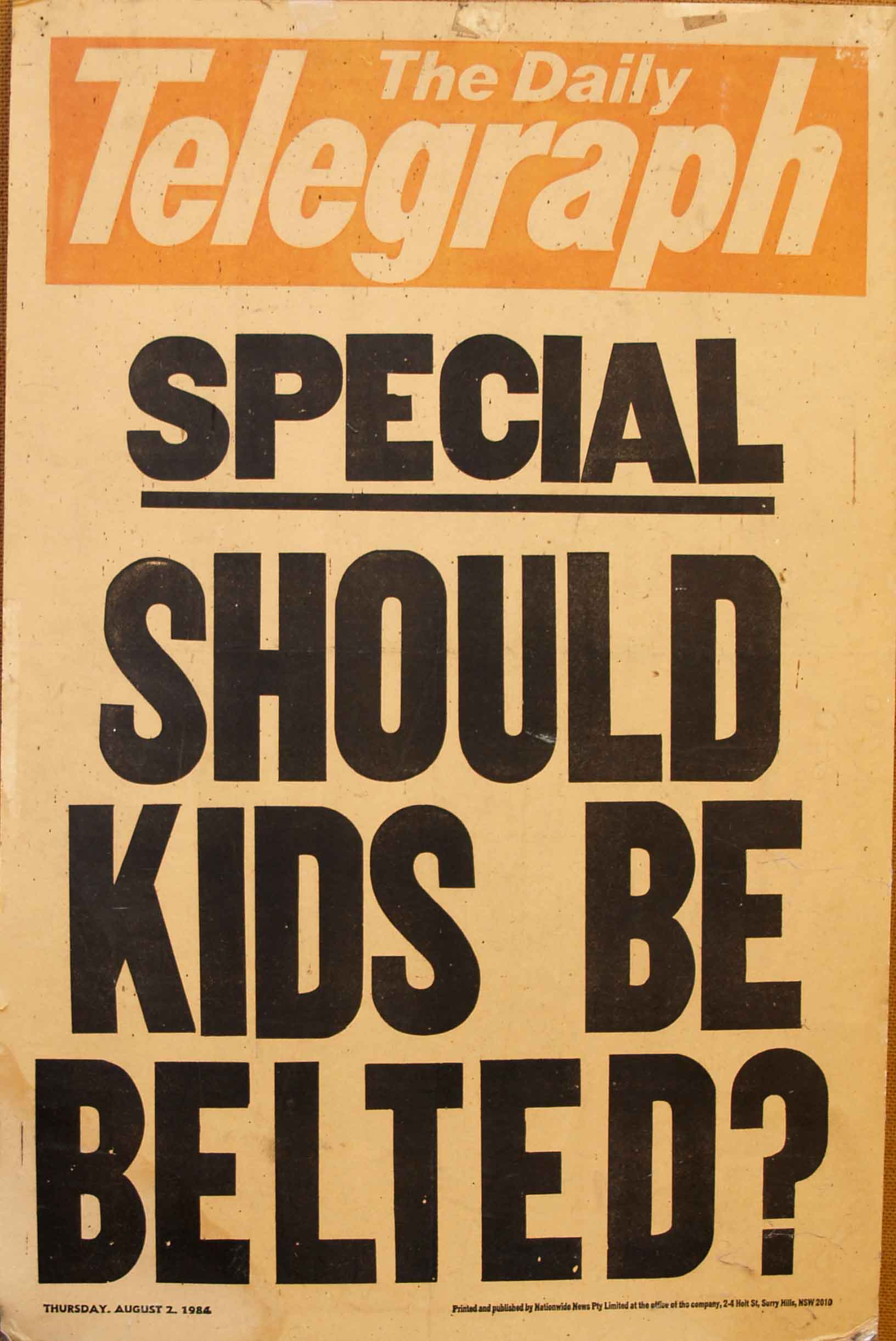 Thursday, August 2, 1984 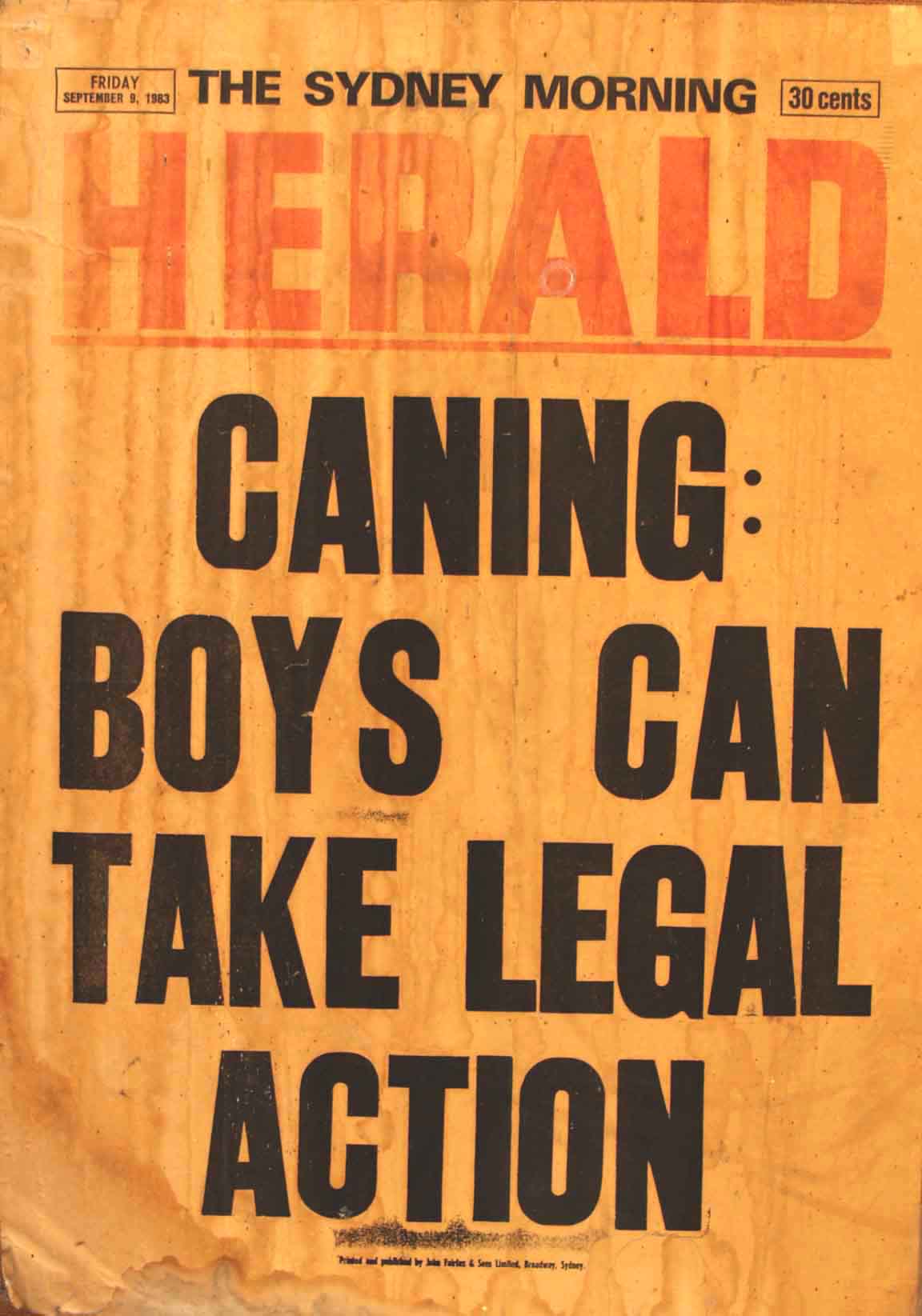 Friday, September 9, 1983
|
When, in 1974, Jordan Riak emigrated from New Jersey to New South Wales, Australia with his wife and three young sons, he never expected the move to trigger a life-changing experience. Having received his entire early education in New Jersey -- a state that had banned school corporal punishment in the mid-19th century -- he was totally unprepared for what he encountered when he enrolled his children in Australian schools. It was a wake-up call. Canings at his sons’ schools were routinely inflicted for trivial infractions or no discernible reason at all. Children attended school in fear.In 1978, working with Brian Stephenson, he launched Parents and Teachers Against Violence in Education (PTAVE) which spearheaded the campaign to ban pupil beating in New South Wales schools, and which eventually succeeded in that purpose. The ban, which was first imposed as a matter policy, became law in 1995. When he returned to the United States, settling in California, he continued his involvement with this issue. In 1983, he incorporated PTAVE in California. In 1985 he met California Assemblyman Sam Farr (later to become the Congressman representing California’s 17th District) who invited him to draft legislation to outlaw school corporal punishment. Farr introduce the bill, AB 1617, in 1985, and it became law in 1987, making California the 9th state to protect scholchildren -- 1.5 million of them. Corporal punishment statistics indicate that approximately 7,000 incidents of legal corporal punishment occurred in California schools during the school year prior to abolition. Riak believes that responsible management of children, whether by parents at home or teachers at school, is like any other complex and demanding task: acting on impulse or out of habit isn't good enough. One must become informed. One must think critically about what one is doing. And central to critical thinking is one’s readiness to step outside the easy protection of old rationalizations and time-honored traditions, and to honestly examine the consequences to others of one's behaviors. Violence in all human interaction, especially in the exercise of control by the powerful over the powerless, is the worst of all bad habits. It represents a fundamental failure in our humanity, he believes. The by-product of violence in early childhood almost inevitably is more violence downstream. Riak, 67, resides in Alamo, California where he works as Executive Director of Parents and Teachers Against Violence in Education, and manages their Web site, Project NoSpank at www.nospank.net. He is a frequent guest on television and radio, lectures widely, and teaches the principles of non-punitive parenting to inmates in the Pre-Release Programs at California State Prison - Folsom and California State Prison - Solano. His work in the prisons is done on a volunteer basis. May 2002 Broadcast interviews
Personal scrapbook:
|
